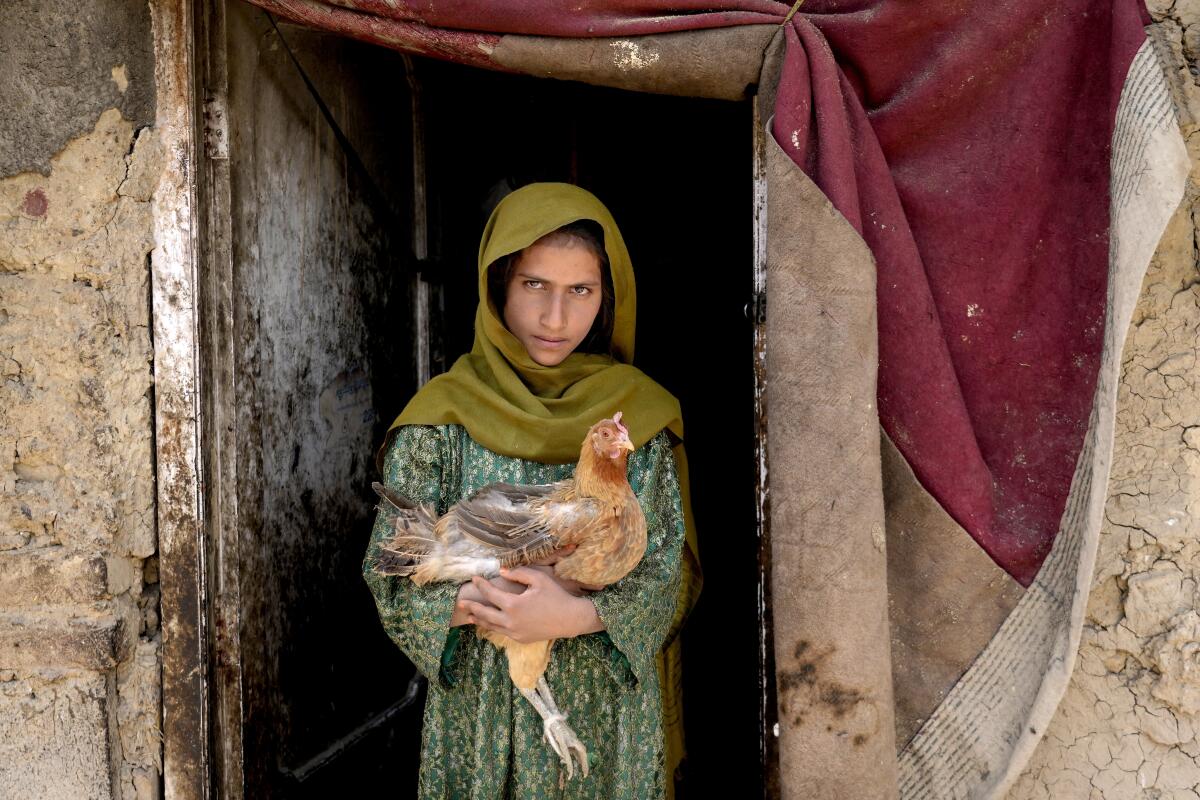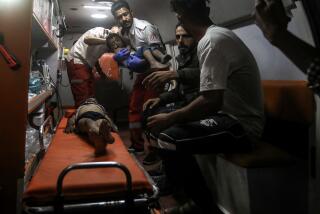Afghans ‘will struggle for their lives’ this winter, the Red Cross warns

- Share via
KABUL — More Afghans will be struggling for survival as living conditions deteriorate in the year ahead, a top official of the International Committee of the Red Cross said in an interview, as the country braces for its second winter under Taliban rule.
The religious group’s seizure of power in August 2021 sent the economy into a tailspin and fundamentally transformed Afghanistan, driving millions into poverty and hunger as foreign aid stopped almost overnight.
“The economic hardship is there. It’s very serious and people will struggle for their lives,” Martin Schuepp, director of operations at the Red Cross, said in an interview late Sunday.
Sanctions on Taliban rulers, a halt on bank transfers and billions of dollars’ worth of frozen government currency reserves have already restricted access to global institutions and the outside money that supported the country’s aid-dependent economy before the withdrawal of U.S. and NATO forces.
The onset of winter will compound the acute humanitarian needs that half the population is already facing, Schuepp noted.
“Prices are spiking due to a whole set of reasons, but also the issue of sanctions has led to massive consequences,” Schuepp said. “We see more and more Afghans who are having to sell their belongings to make ends meet, where they have to buy materials for heating while at the same time have to face increasing costs for food and other essential items.”
A year of Taliban rule sees Afghanistan’s economy in ruins and hope and security for Kabul’s residents in short supply.
Sanctions are a challenge to getting aid and the necessary supplies to the country in a timely fashion, and it is key that all sanctions have humanitarian exemptions so that organizations like the ICRC can continue their work, he said.
The Red Cross is already paying the salaries of 10,500 medical staff every month to ensure that basic healthcare services stay afloat, he added.
“We are very conscious that it’s not our primary role to pay for salaries of medical staff. As a humanitarian organization, we are not best placed to do that,” Schuepp said. “We have done so exceptionally to ensure that services continue to be provided.”
Schuepp, making his first visit to Afghanistan as director of operations since the Taliban takeover, said the agency was feeding most of the country’s prison population. He was unable immediately to say how many prisoners there were in Afghanistan.
China expands its links to Afghanistan as entrepreneurs scout for business opportunities and Beijing makes overtures to the ruling Taliban in Kabul.
“We have stepped up our support to prisons and prisoners, ensuring that food is being provided in the prisons throughout the country,” he said. “Today, about 80% of the prison population benefits from such food support.”
He described the Red Cross’ role as a “stopgap measure” that had become necessary following the collapse of the U.S.-backed Afghan government when Washington began its final withdrawal of troops in August 2021.
No country in the world has recognized the Islamic Emirate of Afghanistan, as the Taliban calls its administration, leaving the war-ravaged nation internationally isolated. The religious group previously ruled Afghanistan in the 1990s and was overthrown by a U.S. invasion in 2001.
More to Read
Sign up for Essential California
The most important California stories and recommendations in your inbox every morning.
You may occasionally receive promotional content from the Los Angeles Times.












